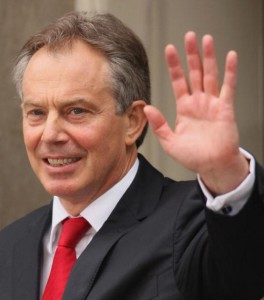
Tony Blair has been accused of trying to “erase” his role from history after an article published on his charitable foundation’s website about the rise of Isil made little mention of Britain’s role in the Iraq War.
A background article entitled “What is Isis?” on the website of the former Prime Minister’s Faith Foundation gives an in-depth analysis of the rise of the terror group.
However, it makes little reference to the role that the US and British invasion of Iraq played in Iraq, referring instead to “Iraq’s descent into chaos between 2003 and 2007”.
Historians have said that the invasion of Iraq and the power vacuum created after the ousting of Saddam Hussein played a key role in the rise of Isil.
President Barack Obama also admitted earlier this year that the terror group was a “direct outgrowth of Al Qaeda in Iraq that grew out of our invasion”.
He said: “It is an example of unintended consequences, which is why we should generally aim before we shoot.”
Andrew Bridgen, a Tory MP, said: “It’s an upsetting attempt to rewrite the history of the Middle East and erase Tony Blair’s participation in it. The decision he made played a part in creating the political vacuum in which Isil could develop”.
The article was written by Peter Welby, the editorial manager of the Faith Foundation and son of the Archbishop of Canterbury.
It explains that the roots of Isil can be traced back to 2002, when Abu Musab al-Zarqawi, a Jordanian militant founded an extremist group in the North of Iraq.
The article says: ‘Following the 2003 invasion of Iraq, Zarqawi’s organisation grew more active and affiliated itself to Al Qaeda in 2004, becoming Al Qaeda in Iraq (AQI).’

His article states that Al Qaida in Iraq was “an influential actor in Iraq’s descent into chaos between 2003 and 2007”.
His group became known as Isil in 2006 after joining forces with several other extremist groups.
The article says: “The USA withdrew its forces in 2011 and the promised integration of the Anbar militias into the armed forces was abandoned, removing a significant counter to insurgent activity.
“Absent American restraint, Prime Minister Maliki gave vent to his more sectarian impulses, creating grievances that the Islamic State was quick to exploit.”
A spokesman for the Tony Blair Faith Foundation said: “The background briefing “What is ISIS?” is widely read piece from our online resource Religion & Geopolitics, which is helping inform the international community about religion and conflict.
“Religion & Geopolitics researches ideologies and monitors the activities of the violent groups involved.
“You are wrong in your assertion that it doesn’t look at events following the invasion of Iraq in 2003. In fact just under one third of the piece does exactly that.”